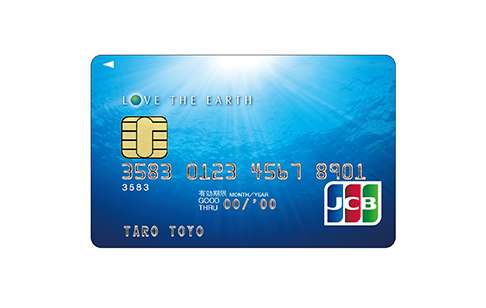Sustainability
Realizing a Decarbonized Society
We have set "Achieving a Decarbonized and Circular Society" as one of the priority materiality issues to address, and we are committed to reducing GHG emissions in our business operations. Additionally, we are working towards realizing a low-carbon and circular society by utilizing our business expertise and creating new business opportunities.
Environmental Data
Performance Data
Environmental Accounting
To reduce the environmental impact of our business activities, we have introduced environmental accounting based on the "Environmental Accounting Guidelines 2005" issued by the Ministry of the Environment, which will allow us to quantitatively understand the costs and effects of our environmental conservation activities.
- ■Reporting Period:
- FY 2022 (April 1, 2022, to March 31, 2023)
FY 2023 (April 1, 2023, to March 31, 2024)
- ■Scope of Reporting:
- Orient Corporation (standalone)
Environmental protection costs (in thousands of yen)
| Classifications | Main initiatives | 2022 | 2023 | Year-on-year increase or decrease | |||
|---|---|---|---|---|---|---|---|
| Investments | Costs | Investments | Costs | Investments | Costs | ||
| Costs within the areas of the business operations | Replacement with energy-saving equipments and computers, as well as waste disposals | 270,537 | 190,618 | 202,227 | 147,296 | ▲68,310 | ▲43,322 |
| Upstream and downstream costs | Costs incurred for environmental friendly purchases | 0 | 5,066 | 0 | 4,813 | 0 | ▲253 |
| Administrative activity costs | Disclosure of environmental information | 0 | 38,750 | 0 | 59,750 | 0 | 21,000 |
| Social activity costs | Environment-related donations | 0 | 18,260 | 0 | 18,817 | 0 | 557 |
| Total | 270,537 | 252,694 | 202,227 | 230,677 | ▲68,310 | ▲22,017 | |
Environmental protection effects
| Classifications | Measurement Items | Unit | 2022 | 2023 | Environmental protection effects |
|---|---|---|---|---|---|
| Resources input into business activities | City Gas | Thousand m³ | 545 | 553 | 8 |
| Petroleum gas | t | 1 | 0 | ▲1 | |
| Kerosene | Kl | 2 | 1 | ▲1 | |
| Electric power | Thousand kWh | 20,382 | 19,407 | ▲975 | |
| Steam | GJ | 359 | 331 | ▲28 | |
| Hot water | GJ | 339 | 239 | ▲100 | |
| Cold water | GJ | 595 | 623 | 28 | |
| Others | GJ | 72 | 71 | ▲1 | |
| Total energy input | Calorific value GJ | 226,082 | 194,134 | ▲31,948 | |
| Environmental impact and waste emitted from business activities | Greenhouse gas emissions | t-CO2 | 10,764 | 8,954 | ▲1,810 |
Environmental Data
Energy consumption based on the Energy Conservation Act
| 2019 | 2020 | 2021 | 2022 | 2023 | Average change in basic unit over 5 fiscal years |
|
|---|---|---|---|---|---|---|
| Energy consumption (kl) | 6,905 | 6,709 | 6,489 | 5,833 | 5,590 | 6,305 |
| Basic unit for energy use Year on year (%) |
97.4 | 100.1 | 98.6 | 91.6 | 96.1 | 96.8 |
| Reduction rate (%) | ▲3 | 0 | ▲1 | ▲8 | ▲4 | ▲3 |
Scope of data collection: Kojimachi Head Office, Head Office Annex, Tsurugashima Building, and others (including tenants)
Saitama Prefecture Ordinance on Promotion of Global Warming Countermeasures (Targeted Emissions Trading System: 3rd Plan Period/FY2020-FY2024)
①Obligations imposed on our company
Reduce CO2 emissions by 22% from the base emissions (reduction of CO2 emissions at target sites during the reduction plan period)
| Target site | Reduction Plan Period | Base emissions (unit year) | Reduction rate | Single-year emission potential |
|---|---|---|---|---|
| Head Office Annex Building | FY2020 - FY2024 | 6,286t | ▲22% | 4,903t (6,286t×▲22%) |
②Performance against reduction obligations
| 2020 | 2021 | 2022 | 2023 | 2024 | Total for 3rd plan period | |
|---|---|---|---|---|---|---|
| Base emissions (t) | 6,286 | 6,286 | 6,286 | 6,286 | 25,144 | |
| Emissions for the year (t) | 4,980 | 4,963 | 4,277 | 3,986 | 18,206 | |
| Reduction (t) | 1,306 | 1,323 | 2,009 | 2,300 | 6,938 | |
| Reduction rate (%) | ▲21 | ▲21 | ▲32 | ▲37 | ▲28 |
Reducing Electricity Consumption and CO2 Emissions
To reduce electricity consumption and CO2 emissions, we are working within the company to do what we can in our immediate surroundings. As a specified business operator under the Energy Conservation Act, we are working to reduce electricity consumption by 1% or more per year. In addition, as a site subject to the Saitama Prefectural Ordinance on the Promotion of Measures to Cope with Global Warming and Targeted Emissions Transaction System, we are actively working to reduce energy consumption and CO2 emissions.
We are promoting company-wide energy conservation through casual biz, reducing the air conditioning load by applying light-shielding film to the windows of the head office building, reducing the use of ceiling lights and turning off lights, switching to LED lighting in our own buildings, and setting office equipment to energy-saving mode.
In addition to promoting the use of eco-cars in company vehicles, efforts are being made to reduce CO2 emissions by reducing the total number of company vehicles, reducing the amount of petrol used, and reducing mileage by promoting online sales.
Initiatives for the Realization of a Decarbonized and Circular Society
Businesses for the realization of a decarbonized and circular society
We aim to contribute to the realization of a decarbonized and circular society, not only through auto loans but also through the supply of electric vehicles (EVs). We will also introduce a combined loan for EVs and V2H (Vehicle-to-Home) , enabling mutual complementation between EVs and green power supply to homes. We will also enhance our services so customers can lead lifestyles with low environmental impact. We will contribute to realizing a decarbonized and circular society with our co-creation partners, such as car dealers and housing manufacturers. In addition, as a leading company in the auto loans sector, we aim to realize a decarbonized and circular society through the use of digital technology by participating in the Mobility Open Blockchain Initiative (MOBI)*.
- Regarding our membership in MOBI, an international standardization consortium for blockchain technology in next-generation mobility (Japanese Only)PDF
- Announcement of a Capital and Business Alliance with ASF Corporation (Japanese Only)PDF
- Basic Agreement on Comprehensive Business Alliance with Nichicon Corporation, the Largest Manufacturer of V2H Systems (Japanese Only)PDF
- Regarding the Establishment of the “Orico Sustainability Fund” (Japanese Only)PDF
Promotion of renewable energy
The use of limited energy resources to the extent that they can be renewed for the future is a global issue. In Japan, introducing renewable energy is one of the policies as a means other than energy conservation. We are introducing new schemes and products for environmental products, such as eco solar loans and storage batteries.
Expanding EV handling and promoting environmental products
We are contributing to the realization of a decarbonized and circular society by promoting the handling of environmental products such as EVs in Japan and overseas.
- Supporting the spread of V2H through collaboration with local dealers
- Promoting the spread of EVs in local areas by making full use of the vehicle procurement network in the auto leasing business
-
Contributing to the development of the EV market in Southeast Asia
- Researching trends in the Southeast Asian market
- Strengthening approaches to EV manufacturers and new car dealers
Becoming a player in establishing a healthy used car and EV market in Southeast Asia
We are actively expanding into the rapidly growing Southeast Asian market. Leveraging our experience and expertise as a player in the auto loan industry in Japan, we aim to establish a certified used car scheme that guarantees safety and integrity in Southeast Asia, contributing to the establishment of a circular economy. Moreover, we support the efforts of Southeast Asian countries towards developing an EV market, offering the abundant knowledge in auto loan and network that we have cultivated through our domestic operations.
Social Contribution Card
We issue social contribution cards that allow cardholders to support environmental conservation activities. The Social Contribution Card is a system that donates a portion of the amount spent to partner organizations without burdening on the cardholders. By encouraging customers to use the card, we aim to help solve social issues, including environmental problems, and to realize a sustainable society.
Web Statements (Mail Service Suspension)

Switching to web statements (mail service suspension) and stopping using paper statements (reducing CO2 emissions by approximately 500g per statement) helps protect the environment.
Financing with consideration for the realization of a decarbonized and circular society
We aim to realize a sustainable society by issuing green bonds (unsecured straight bonds) through a domestic public offering, promoting the diversification of fund raising methods, and promoting initiatives to address climate change issues, including the spread of renewable energy.
Green Bond Issuance Results
| Date of Issuance | Series number | Issued Amount | Loans Covered |
|---|---|---|---|
| 12-Apr-19 | The 21st Unsecured Corporate Bond (Green bonds with inter-bond pari passu clause) |
5 billion yen | Solar power renovation |
| 20-Jan-22 | The 31st Unsecured Corporate Bond (Green bonds with inter-bond pari passu clause) |
5 billion yen | Electric vehicle (EV) |
Overview of Green Bonds
| The 21st Unsecured Corporate Bond | |
|---|---|
| Date of Issuance | 12-Apr-19 |
| Issue term | 5 years |
| Issue amount | 5 billion yen |
| Interest rate | 0.50% |
| Use of Funds | Refinancing funds raised to cover the cost of installing energy-saving equipment such as solar power generation systems, storage batteries, and eco-cute hot water systems (“solar home renovation loans”) |
| Acquired Rating |
|
| Reporting |
|
| Investors who have announced their investment (in no particular order) |
|
| The 31st Unsecured Corporate Bond | |
|---|---|
| Date of Issuance | 20-Jan-22 |
| Issue term | 3 years |
| Issue amount | 5 billion yen |
| Interest rate | 0.09% |
| Use of Funds | Refinancing of funds raised for auto loans for electric vehicles (EVs) |
| Acquired Rating |
|
| Reporting |
|
| Investors who have announced their investment (in no particular order) |
|
Third-party evaluation of eligibility (common to all issues)
JCR Green Finance Framework Evaluation
As a third-party evaluation, Japan Credit Rating Agency, Ltd. (JCR) has awarded the highest rating of “Green 1” for the eligibility of this Green Bond
Green Bonds Issuance Promotion System Establishment Support Business of the Ministry of the Environment
The acquisition of a third-party evaluation for this Green Bond is eligible for a subsidy under the Green Bonds Issuance Promotion System Establishment Support Business of the Ministry of the Environment.
Sustainability
-
Sustainability Management

- Sustainability Management
- In this page, we introduce our sustainability management, the sustainability basic policy, materiality and other information.
-
Value Creation Process

- Value Creation Process
- This page introduces our Value Creation Process.
-
ESG Information

- ESG Information
- This page is a directory of our Environmental, Social and Governance (ESG) information. This page provides intuitive navigation to the information you are looking for on our sustainability management initiatives.
-
Social contribution activities

- Social contribution activities
- Here, we introduce our approach to social contribution and the results of our activities.
-
ESG Data

- ESG Data
- This page provides a range of ESG data on our sustainability management performance.
-
External Recognition

- External Recognition
- This page presents an external evaluation on our sustainability management initiatives.



